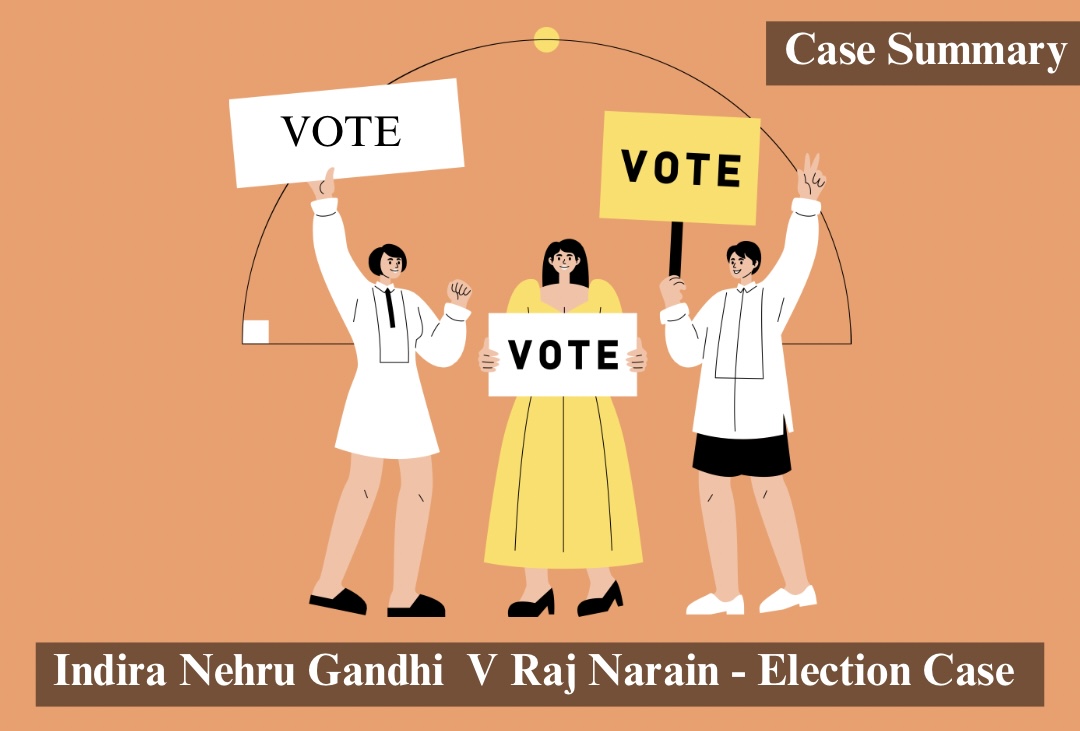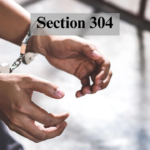
Read Time:2 Minute, 33 Second
Indira Nehru Gandhi V Raj Narain
AIR 1975 SC 2299 : (1975) Supp SCC 1: (1976) 2 SCR 247
Brief of the Case
Brief
Citation : AIR 1975 SC 2299 : (1975) Supp SCC 1: (1976) 2 SCR 247
Court : The Supreme Court of India
Date of Decision : 7 November 1975
Judges : AN Ray CJ, KK Mathew, HR Khanna, YV Chandrachud and MH Beg JJ
Petitioner : Indira Nehru Gandhi
Respondent : Raj Narain
Facts of the Case
Facts
- An appeal was filed by the Appellant against the decision of the Hon’ble Allahabad High Court invalidating Smt Indira Nehru Gandhis election on the ground of corrupt practices and in the meantime the parliament enacted the 39th Amendment to overcome the effect of the High Court judgement by withdrawing the jurisdiction of all courts over the election disputes involving the Prime Minister.
- The very Amendment was made with the intention to validate with retrospective effect the election of the then Prime Minister which was set aside by the Hon’ble Allahabad High Court.
Issues of the Case
Issue
- The issue involved in this case was of the validity of the Clause 4 of the Constitutions 39th Amendment Act, 1975.
- The contention was that the Clause in question wiped out not merely the High Court judgement but also the election as well as the law relating thereto.
Judgement of the Case
Judgement
- The Hon’ble Court struck down the Clause on the ground that it violated the Free and Fair Elections which was a essential feature which formed the part of the Basic Structure of the Constitution. The exclusion of the Judicial Review in the election disputes in this manner damaged the Basic Structure.
- The Clause 4 of the Constitutions 39th Amendment Act, 1975 was held unconstitutional on the ground that it was outright negation of the Right to Equality conferred by Article 14 and this very right is a basic postulate of our Constitution.
- The Hon’ble Court held that these provisions were arbitrary and were calculated to damage or destroy the Rule of Law. The Hon’ble Supreme Court added the following features as the Basic Features to the list of basic features laid down in the landmark case of Keshavananda Bharati.
- Judicial Review
- Rule of Law
- Jurisdiction of the Supreme Court under Article 32
- Democracy which implies free and fair election
- The court observed that the jurisdiction of the Supreme Court to try a case on the merits can not be taken away without inquiry to the basic postulates of Rule of Law and of justice within a politically democratic constitutional structure.
Held
Held
- The Clause 4 of the Constitutions 39th Amendment Act, 1975 is unconstitutional and void because by exclusion of the Judicial Review in the election disputes and it damaged the Basic Structure of the Constitution of India.







